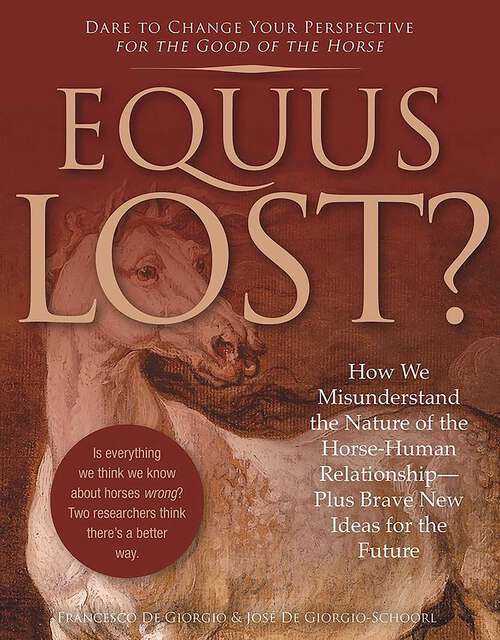
Equus Lost?
Animals and wildlife, Sports and games
Synthetic audio, Automated braille
Summary
In the 1980s, the world of riding, training, and competing with horses took a major turn with the spread of natural horsemanship, which at its most basic foundation rejects the use of abusive techniques and relies on methods derived from… understanding the dynamics of free-roaming horse herds. Since then, equestrians across disciplines have incorporated elements of natural horsemanship into their work. But despite what was certainly an advancement in human-equine interaction that has improved the lives of many horses, Italian animal behaviorists Francesco de Giorgio and José Giorgio-Schoorl dare to now ask,What if much of what we think we know about horses is, in fact, wrong? What if the premise of herd hierarchy is a myth? What if conditioning the horse's behavior in the ways we've grown accustomed is undercutting his potential for development? What if there is another—better—level of partnership to which we can aspire?Their provocative book takes us into a dimension where we shed our assumptions of leadership, dominance, and control, convincingly showing a way forward that acknowledges that a horse, when allowed, is driven by his own inner motivation to explore and understand the world around him, including his relationship with humans.